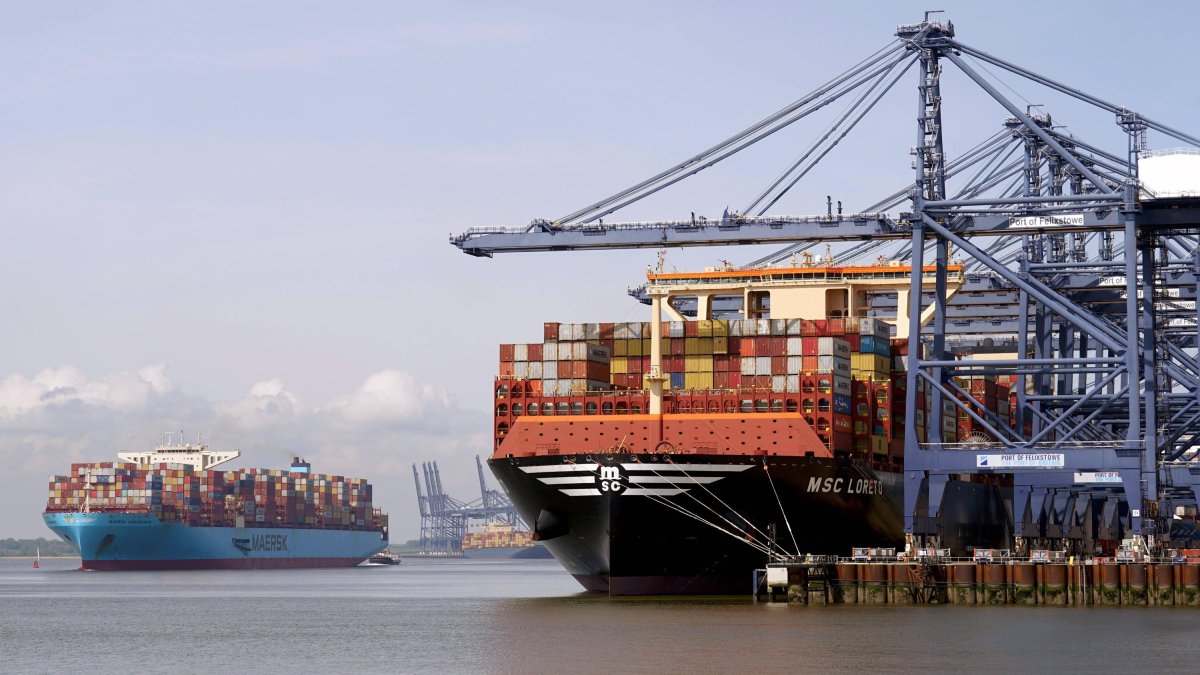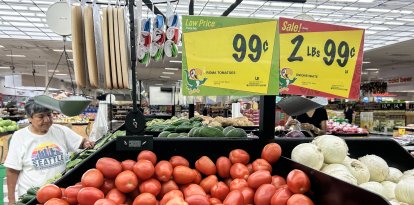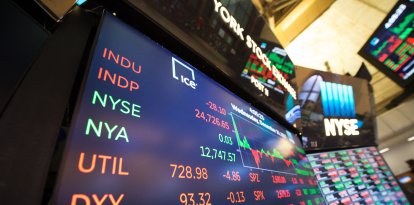ANALYSIS
A new era begins: Trump's tariffs are already in force
Global markets are once again stained red as U.S. trading partners try to reach agreements to reduce the levies.

Several cargo ships at a port
World trade entered a new era Wednesday night. Donald Trump's tariffs went into effect, setting a new paradigm in international markets. The president's last steps before the activation, increasing to 104% the levies on China, once again stained red the trading floors around the globe, erasing Wall Street's timid rebound during Tuesday and dragging down Asian stock markets, which suffered further declines.
The new customs tariffs affect almost 60 trading partners with additional levies of between 11% and 50%, with the exception of China, whose products now pay the aforementioned levy of 104%, in a clear example that Trump's threat towards countries that counterattack with economic barriers will be harshly penalized.
Trump exemplifies with China: counterattacks will be harshly punished
Trump's message to China, his main economic and military rival, was clear and decisive. Since returning to power in January he has imposed a 20% surcharge on Chinese goods, which was set to increase to 54% on Wednesday with the 34% hike announced the previous week. However, it ultimately reached 104% due to an additional 50% levy in response to China's decision to impose a 34% tariff on U.S. products, despite warnings from the White House.
However, the communist government of Beijing, however, assured that, despite Washington's "blackmail," it has sufficient capacity to withstand Trump's economic punishment. A spokesperson for China's Ministry of Commerce sharply criticized the measure, stating that "the U.S. threat to raise tariffs against China is one mistake after another and once again exposes Washington's coercive nature."
In addition, Chinese Premier Li Qiang said China has enough "tools" to "offset" the economic turbulence, according to Xinhua news agency.
Global stock markets return to turbulence as Chinese indices close in the green
However, Asian stock markets resumed their downward trend on Wednesday due to the impact of the tariffs. The Japanese Nikkei 225 index closed down 3.9%, though it experienced much greater losses at various points during the day, in Hong Kong the drop was 1.6% and in Taiwan 5.8%. In contrast, the main Chinese indicators ended the session in positive: the Hong Kong stock exchange recorded gains of 0.74%, while Shanghai achieved gains of 1.31%.
Oil also fell in Asian trading. Since last Wednesday, when the U.S. president announced tariffs on a significant portion of imports from most countries around the world, investors have lost trillions of dollars.
Trump: "These countries are calling us out, kissing my c***"
During the National Republican Congressional Committee dinner in Washington, Trump boasted of having every country in the world trying to reach agreements to at least limit the scope of the tariffs: "I'm telling you, these countries are calling us, kissing my c***. They're dying to make a deal. 'Please, please sir, make a deal. I'll do anything, sir'."
Trump, however, was open to dialogue. Mind you, the president spoke of "tailor-made" deals. "We're doing very well and I call them tailored deals, not a la carte, they're tailored, very tailored," he said. In this regard, Trump on Tuesday claimed to have had a "very good conversation" with South Korea's prime minister and interim president, Han Duck-soo, according to a message posted on the Truth Social platform.
"This is all going in the right direction"
"The president's instructions to all of us have been very clear: we must prioritize our allies and trading partners," White House senior economic adviser Kevin Hassett, commented on Fox News. The president will decide "when and if we should talk to China, but for now, we've been instructed to prioritize our allies and trading partners like Japan, Korea and others," he continued.
Finance Secretary Scott Bessent told Fox News that "maybe close to 70 countries" have already contacted the U.S. administration about tariffs. "This is all going in the right direction," U.S. Trade Representative Jamieson Greer told U.S. Senators.
"We must move away from an economy based solely on the financial sector and government spending" to focus on one "based on the production of real goods and services," he stressed. In addition, Greer estimated that the country has lost five million manufacturing jobs and 90,000 factories over the past 30 years since a trilateral free trade agreement with Mexico and Canada was enacted.

























